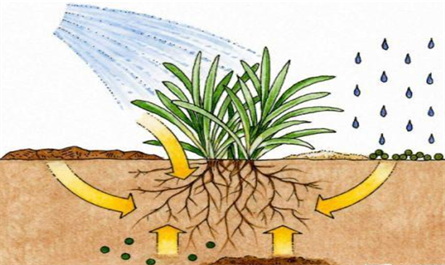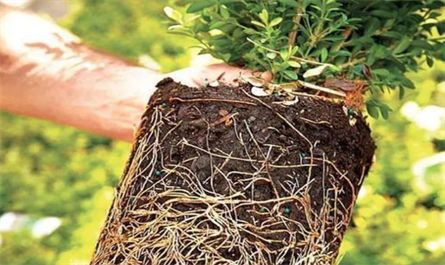Brassinolide:14-Hydroxylated brassinolide (crystal form) foliar spray or root irrigation which is better?

14-Hydroxylated brassinolide is a natural brassinolide, which is widely used in a variety of crops.
At present, there are many foliar spraying schemes of 14-Hydroxylated brassinolide with fungicides, insecticides, regulators and foliar fertilizers, which have outstanding effects such as increasing photosynthesis, protecting flowers and fruits, synergistic enhancement, and reducing the risk of pesticide damage.
However, foliar spraying can only play 20% of the power of brassinolide. 14-Hydroxylated brassinolide root irrigation can better play its role in promoting root development, improving stress resistance and increasing fertilizer absorption, utilization and transportation.
Roots are one of the six major organs of plants. They are the main part of crops absorbing and transporting water and nutrients. At the same time, they play an important role in storing nutrients and fixing crops. For crops, the importance of the root system is self-evident. A healthy root system is the prerequisite for a strong plant and healthy fruits. A good crop harvest is based on the "root".
In addition to fixing and supporting crops, the root system of crops also plays four key roles: absorption, conduction, synthesis, and storage. Crops mainly absorb water and nutrients through the root hairs on the root tip, and then transport water and nutrients to various organs such as stems, leaves and fruits through the vascular tissue on the roots; at the same time, various nutrients synthesized on the leaves are also transported to the roots, some of which are synthesized into various plant hormones mainly cytokinins, and some are stored in the parenchyma tissue on the roots.
Once the root system is damaged, the absorption and conduction of nutrients and water by crops are directly affected, and the synthesis of cytokinins and various organic compounds is slowed down. The direct manifestation is that crops grow slowly and have various nutrient deficiency symptoms, which directly affects the yield and quality of crops.

14-Hydroxylated brassinolide promotes root development
14-Hydroxylated brassinolide can promote root development, increase the number and length of roots, improve the activity of various proteases, and enhance the absorption, conduction and synthesis of water and nutrients by the root system. 14-Hydroxylated brassinolide uses biostimulant pollen polysaccharide as an adjuvant, which can increase the number of root hairs on the root tips of crops, directly improving the absorption efficiency of crops for water and nutrients.
14-Hydroxylated brassinolide enhances absorption and conduction
After crops absorb nutrients through passive absorption and active absorption, they are transported to the aboveground parts of crops through the wood. 14-Hydroxylated brassinolide can increase the active absorption capacity of nutrients by enhancing root vitality and metabolic levels, while promoting the root system to transport nutrients to the aboveground parts.
14-Hydroxylated brassinolide improves stress resistance, resistance to low temperature, acid and alkali, resistance to salinization, and resistance to drought.
For example, fertilization in winter and early spring often does not show good fertilizer effect. The main reason is that the temperature is too low, causing the plant roots to be dormant and lack vitality. 14-Hydroxylated brassinolide can improve the activity and metabolic level of proteases, and by enhancing the root tolerance to low temperature, ensure the normal operation of the root system in adverse environments. Roots are deep and leaves are lush. Roots are one of the most important organs in crops, and their importance is self-evident. Farmers are also paying more and more attention to the health of crop roots. As a type of natural brassinolide, 14-Hydroxylated brassinolide has long been recognized by farmers for its excellent root promotion and root protection functions. 14-Hydroxylated brassinolide will also usher in broader development.



